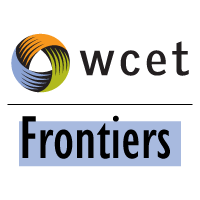If you have not heard about it, there are several links below to coverage of the U.S. Senate’s hearing last week regarding for-profit institutions. I could not make it to DC for the hearing, but I followed the tweets and watched most of the testimony online. Committee Chair Sen. Tom Harkin of Iowa raised concerns about the growth in for-profit institutions and some of their practices.
Kathleen Tighe, Inspector General of the U.S. Department of Education was first to testify. She began by saying that 70% of her office’s investigations have been of for-profit institutions. Steven Eisman, the Wall Street guru who calls for-profit institutions the “next subprime loan disaster,” testified last. He said that for these institutions the “incentives to grow outweigh the incentives to educate.” He also noted that 18 of 23 for-profits are accredited by the Higher Learning Commission.
My concern is that there are times when those testifying painted with a broad brush. Some for-profits have engaged in questionable activity, but not all. Worse yet, there are times where all online education is lumped in as having the same dubious practices. During the testimony there was much sentiment among the Senators about weeding out the ‘bad actors.’ Some examples:
- When asked by Sen. Franken (MN) about certifying student attendance in an online class, Ms. Tighe gave an example of someone who was clearly perpetuating a fraud on institutions to use others’ identities to reap financial funds. This was not an example of an institution that highlights an institutional ‘bad actor.’ As presented, I felt that it had the effect of calling into question all online education.
- Sen. Bennett (CO) began his testimony citing Colorado’s experience with the first round of online K-12 education. He used to be the Superintendent of Denver Public Schools. He called the early days on online K-12 education a disaster, but followed-up that he did not want to stifle innovation.
My concern is based in recent experience, as well. The processes that lead to what we now know as the Higher Education Opportunities Act once included several provision regarding for-profit institutions. When those were stripped out, companion legislation (such as the student authentication language) originally intended only for select institution remained.
I agree that regulation to stop the ‘bad actors’ needs to be considered at this point. All of us in the WCET family are for integrity and stopping fraud. What we do not want are regulations that punish the innocent more than the guilty.
WCET will continue to pay attention and keep you informed.
